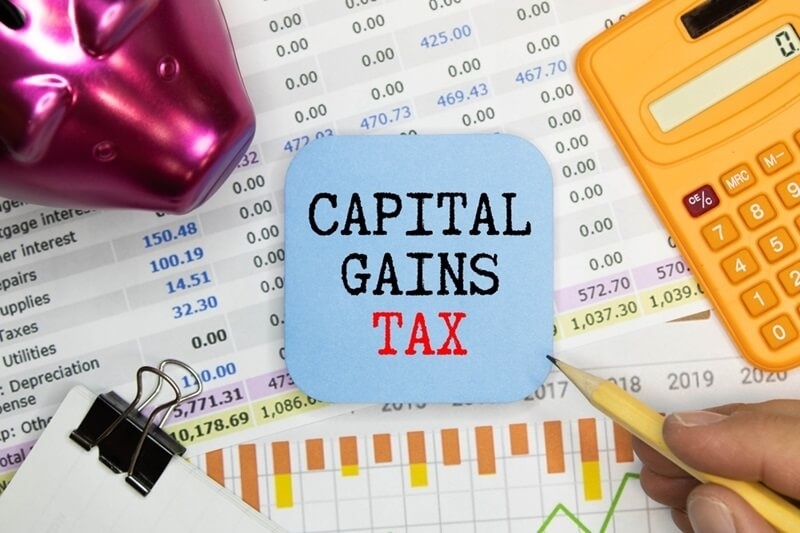
Capital gains tax isn’t just a line on your tax return—it’s a deciding factor in how much you actually take home from your investments. If you’re planning to make smart moves in 2025, understanding how the capital gains tax eats into your profits is non-negotiable. The more you understand the rules, the better you can twist them in your favor. This isn’t about bending the law—it’s about knowing how to play the game.
Let’s break down everything that matters: how the capital gains tax works, how long-term capital gains differ from short-term ones, and most importantly—how to shape your investment strategy 2025 to minimize capital gains tax and boost your real returns.
You buy an asset. It grows in value. You sell it. You profit. The government wants a piece of that profit. That’s capital gains tax.
Now, here’s where it gets interesting: the impact of capital gains tax isn’t just about the rate. It’s about how it reshapes your entire approach to investing. Whether you’re holding stocks, real estate, or even crypto—every move has tax implications. And if you’re not planning around them, you’re leaving serious money on the table.
There’s a massive difference in how your profits are taxed based on how long you hold your investments.
Holding investments for the long haul isn’t just about compounding. It’s one of the most basic but powerful tax-saving tools you’ve got.

The impact of capital gains tax stretches beyond taxes—it affects how frequently you trade, what assets you prioritize, and where you hold them. Here’s how it changes the game:
Your investment strategy 2025 should not just be about chasing returns. It should be about keeping those returns after Uncle Sam takes his cut.
Explore More: Smart Investing Through Portfolio Diversification Today
Here’s where smart planning turns into real savings. Use these strategies to keep more of what you earn.
If you’re planning to sell, hold off until you’ve passed the 12-month mark. The jump from short-term to long-term capital gains rates can save you thousands. This simple tweak is one of the easiest ways to minimize capital gains tax.
If you’ve got losers in your portfolio (we all do), sell them to offset your gains. You can deduct up to $3,000 of net capital losses against regular income, and any extra rolls over to the next year. This isn’t just damage control—it’s strategic trimming.
Put high-growth, tax-heavy assets in tax-advantaged accounts like Roth IRAs or 401(k)s. Keep your more stable or tax-efficient holdings in taxable accounts. This mix helps soften the impact of capital gains tax.
If your income will drop next year (retirement, sabbatical, etc.), postpone your sale to qualify for a lower tax bracket. Timing matters.
In the U.S., selling your primary home might allow you to exclude up to $250,000 ($500,000 if married) in capital gains. That’s tax-free money. Real estate investors can also use 1031 exchanges to defer taxes by reinvesting profits into similar properties.
Your investment strategy 2025 should do more than just react to tax rules—it should be built around them.
If you’ve lived in your home for at least two out of the last five years, you could avoid a big chunk of taxes when you sell. For investors, use Section 1031 exchanges to defer gains. This is a major play in real estate capital gains tax planning.
Crypto’s taxed like property in the U.S.—meaning every transaction is a taxable event. Hold it long-term when possible and consider offsetting gains with losses from underperforming altcoins.
Qualified Small Business Stock (QSBS) offers up to $10M in capital gains exemptions under Section 1202 if held for five years. If you’re investing in startups, structure your entry wisely.
Some countries offer indexation—adjusting the cost of an asset for inflation. While the U.S. doesn’t use this for capital gains, if you're investing internationally (e.g., in Indian markets), it’s something to keep in mind. It effectively lowers your taxable gains.
Tax laws shift. Brackets move. Exemptions change. Stay alert.
If your money’s global, your capital gains tax planning better be global too.
Also Check: Investment Risk Tolerance: Align Your Portfolio Smartly
It’s easy to ignore taxes when the markets are green. But the smart investors? They plan for the taxman before he comes knocking. Don’t just think about what you earn. Think about what you keep.
A rock-solid investment strategy 2025 accounts for the impact of capital gains tax, takes full advantage of long-term capital gains rules, and uses every legal trick to minimize capital gains tax. That’s how you build real wealth.
Because the goal isn’t just growth. It’s keeping it.
This content was created by AI